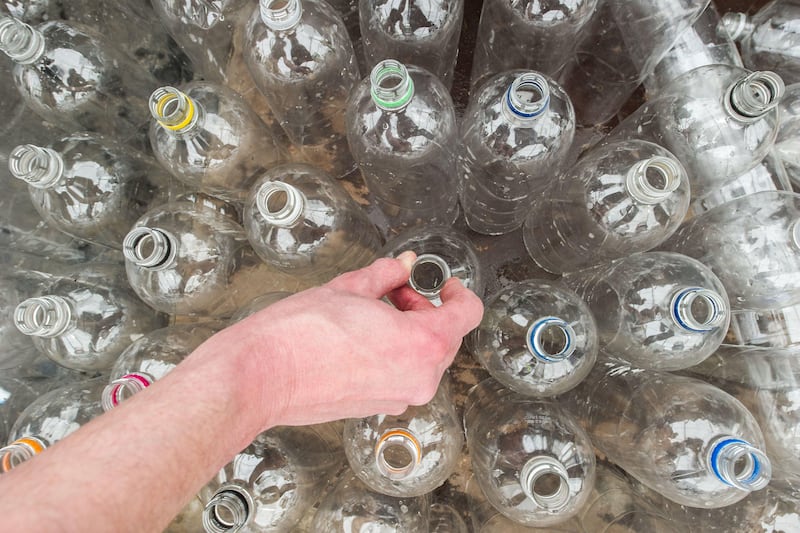Independent breweries in the north are considering pulling sales to the Republic from next month due to the introduction of a deposit return scheme (DRS) for aluminium drinks cans and plastic bottles.
The Irish government recycling initiative, which launches on February 1, will increase the cost of single-use drinks containers, which consumers can recoup, provided they return the empty item.
Glass is excluded from the scheme, with the Irish government citing the high recycling rate for glass in the Republic.
But the requirement for the containers to include a new barcode unique to the jurisdiction, alongside a new government logo, has already resulted in at least one northern brewer announcing the cessation of sales across the border.
Rodger Doherty of the Portrush-based co-operative Lacada, said the DRS will require the small brewery produce separate labelling and incur new administrative costs, which he said would have to be passed onto the consumer, potentially adding £1 to every can sold across the border.
He said the relatively small proportion of sales to the Republic means it’s not viable for the north coast community owned brewery to produce separate labelling lines.
“It just comes down to economies of scale,” he said. “It really is the small producers it is going to hit.”
A DRS is due to be introduced in Northern Ireland and the rest of the UK during 2025.
But it’s unclear whether the new post-DRS barcodes will integrate on a cross-border basis, as they do now.
“Obviously something would need to be done to make it more viable for cross-border,” added the Lacada director.
“But at the minute, one jurisdiction is ahead of another.”
Sadly, due to the Deposit Return Scheme in ROI introduced on 1 Feb 2024, it will no longer be cost effective for us to supply into ROI and we've taken the decision to remove that shipping option from our online shop.
— Lacada Brewery (@LacadaBrew) January 11, 2024
Thank you to all our loyal ROI customers.
~ Lacada Brewery 💛 pic.twitter.com/201viyAvuV
Other independent breweries in the north are also weighing up the new costs, with some confirming they will also stop sales to the Republic if it becomes economically unviable.
Gareth McGivern of Mourne Mountains Brewery in Warrenpoint said the border business is still working out the implications.
“The fact of the matter is, if there is any financial cost to us that isn’t sustainable, then we will just pull out of sales in the south altogether,” he said.
The Co Down brewer also questioned how the Irish government will regulate the significant number of cross-border shoppers who travel north to purchase groceries and alcohol.

Scotland was due to introduce its own DRS in August 2023, but the scheme has been delayed and will instead be launched in 2025 as part of a planned UK-wide roll-out.
A report published last year in response to a UK-wide government consultation was largely concerned with integrating schemes within the UK internal market.
On the Irish border, it said further work was needed to understand the impact on how the DRS will work across the UK and the Republic.
It said the UK government was in communication with Dublin “regarding potential impacts of, and interaction with, its DRS”.
A spokesperson for the Republic’s Department of the Environment, Climate and Communications, said: “Clear labelling makes it easier for consumers and retailers to identify products which are covered by DRS and it reduces the risk of deposit fraud (e.g. where a beverage is purchased in one jurisdiction without a deposit and returned in a neighbouring jurisdiction where a refund is obtained).
“The risk of this type of fraud is much higher where the jurisdiction in which the beverage was purchased does not have a DRS, as is the case here with Northern Ireland.”
The DECC also said a revised package of fees was introduced for small and micro producers in July 2023, which applies to businesses in the north.
Stormont’s Department of Agriculture, Environment and Rural Affairs, which will be responsible for the administration of the north’s DRS, was contacted for comment.







